A lot of Pagans are avid readers, and I am no exception. I never read as much as I want to, and I already regret that I will die before I read everything on my reading list. I read about 20 books this year, and here are the best books I read in 2021.
The Vanishing Half by Brit Bennett, 2020 (Fiction)
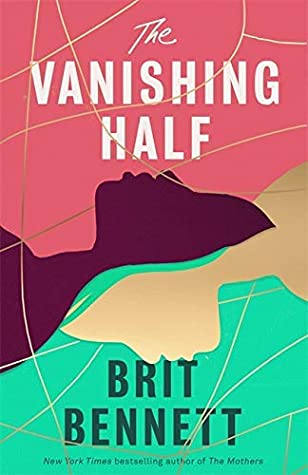 The tragic mulatto is an archetypal mixed-race person who, as a literary trope, is depressed, even suicidal, for failing to fit in the white or black world. Brit Bennett challenges the literary tradition about racial passing in The Vanishing Half.
The tragic mulatto is an archetypal mixed-race person who, as a literary trope, is depressed, even suicidal, for failing to fit in the white or black world. Brit Bennett challenges the literary tradition about racial passing in The Vanishing Half.
The Vanishing Half is a multi-generational family saga set between the 1940s and 1990s. Light-skinned, identical twins Desiree and Stella Vignes are from the fictional Mallard, a small Louisiana town established by a former slave and fixated on lightness. At 16, the twins run away to New Orleans, and Stella disappears shortly after. Years later, Desiree returns to Mallard with her dark-skinned daughter while Stella lives in Los Angeles and passes for white.
The Vanishing Half tackles the thorny issues of colourism, racial identity, bigotry, and challenges the reader’s expectations.
Modern Magick: Twelve Lessons in the High Magickal Arts by Donald Michael Kraig, 2010 (Occult)
 Donald Michael Kraig’s Modern Magick: Twelve Lessons in the High Magickal Arts is a classic on the subject of ceremonial magic. He taught these lessons for years before putting them on paper, revising and expanding them. Topics include the Kabalah, meditation, rituals, tarot, astral projection, tools, evocations, talismans and amulets, sex magick, and more.
Donald Michael Kraig’s Modern Magick: Twelve Lessons in the High Magickal Arts is a classic on the subject of ceremonial magic. He taught these lessons for years before putting them on paper, revising and expanding them. Topics include the Kabalah, meditation, rituals, tarot, astral projection, tools, evocations, talismans and amulets, sex magick, and more.
Kraig proposes two approaches to his book. You could read it like any other book and approach it like armchair travel, or you could tackle one lesson a month and perform all the exercises as you go. I propose a third method that is somewhere in the middle. I studied the lessons over ten months and focused on the areas where I had little knowledge, greater interest, and wanted to work more on.
Modern Magick is a little dated, and Kraig rambles and goes off on tangents, but since Kraig died in 2014, I appreciated hearing his authentic voice. Modern Magick reads like Kraig is talking to you.
Osun Across the Waters: A Yoruba Goddess in Africa and the Americas Edited by Joseph M. Murphy and Mei-Mei Sanford, 2001 (Religion)
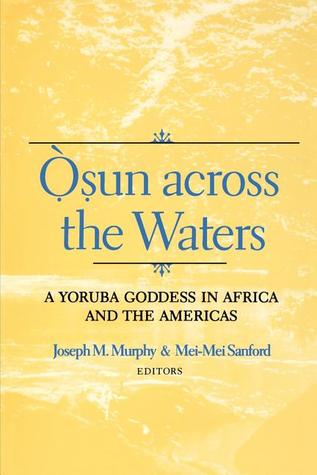 Ochun is the orisha of the river, femininity, love, beauty, and sensuality, but there is much more to her. Osun Across the Waters: A Yoruba Goddess in Africa and the Americas is a scholarly collection of reflections on a complex figure too often reduced to the African Venus.
Ochun is the orisha of the river, femininity, love, beauty, and sensuality, but there is much more to her. Osun Across the Waters: A Yoruba Goddess in Africa and the Americas is a scholarly collection of reflections on a complex figure too often reduced to the African Venus.
From the roots of her tradition in southwest Nigeria to redevelopments across the Atlantic, 17 contributors examine Oshun through multiple disciplines and cultural contexts to reveal the multidimensionality of her power as her traditions continue to grow and change.
As an academic book, Osun Across the Waters can make for dry reading at times, but I recommend it to students of the orisha.
Traditional Wicca: A Seeker's Guide by Thorn Mooney, 2018 (Religion)
 Thorn Mooney is a well-known Gardnerian Wiccan with a strong presence on the Pagan web that includes a Patheos blog and YouTube channel. In her book, Traditional Wicca: A Seeker’s Guide, Mooney introduces her readers to coven-based, lineaged, initiatory Wicca, which is distinct from the popular form of Wicca regularly found on the web.
Thorn Mooney is a well-known Gardnerian Wiccan with a strong presence on the Pagan web that includes a Patheos blog and YouTube channel. In her book, Traditional Wicca: A Seeker’s Guide, Mooney introduces her readers to coven-based, lineaged, initiatory Wicca, which is distinct from the popular form of Wicca regularly found on the web.
Traditional Wicca is not a deep history of Wicca nor a manual of witchcraft, and that’s okay; there are other books on these subjects. Traditional Wicca is about the value of structure, the spiritual strength of lineage and initiation, and the magical intimacy of covens. Mooney also explores how to recognise healthy covens, navigate training, ethics, and more.
As an initiate of Georgian Wicca, I understand Mooney’s perspective. There is so much more to Wicca than what we find on the web. Traditional Wicca is an excellent introduction and unique book in my Pagan library.
The Craft: How the Freemasons Made the Modern World by John Dickie, 2020 (History)
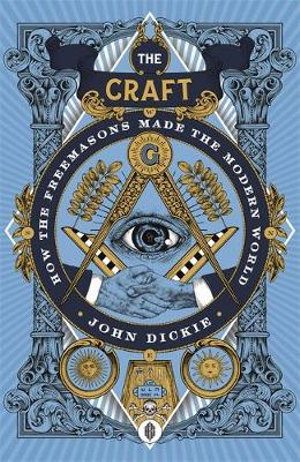 A friend in Europe is joining the Freemasons next year, and his soon-to-be brothers recommended John Dickie’s The Craft: How the Freemasons Made the Modern World. I knew very little about Freemasonry and was happy to read this book along with my friend.
A friend in Europe is joining the Freemasons next year, and his soon-to-be brothers recommended John Dickie’s The Craft: How the Freemasons Made the Modern World. I knew very little about Freemasonry and was happy to read this book along with my friend.
The Freemasons have inspired murderous hatred, passionate devotion, and conspiracy stories. In The Craft, Dickie, a professor at University College London, shows that the real story is often more fascinating than the rumours. He offers a researched, entertaining history of the Freemasons, their core ideas, key members, and antagonists.
You may deduce from the book’s title that Dickie, while not a Freemason himself, is sympathetic to the fraternal organisation, but he doesn’t entirely shy away from its historical controversies and current challenges.
The Gifts of Imperfection by Brené Brown, 2010 (Personal Development)
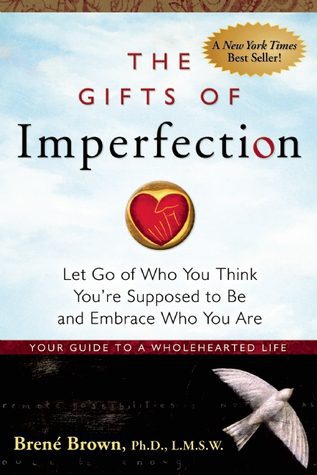 I first came across Brené Brown when her 2010 TedxHouston talk went viral. Still, I had not revisited her work until I picked up her book The Gifts of Imperfection earlier this year.
I first came across Brené Brown when her 2010 TedxHouston talk went viral. Still, I had not revisited her work until I picked up her book The Gifts of Imperfection earlier this year.
The Gifts of Imperfection is about letting go of who you think you’re supposed to be. That is, letting go of worrying what other people think, of perfectionism, shame, exhaustion as a status symbol, and anxiety as a lifestyle. Instead, Brown offers ten guideposts towards Wholeheartedness, which rests on courage, vulnerability, and worthiness.
I enjoy Brown’s work on vulnerability, and The Gifts of Imperfection is short and easy to read while giving you a lot to think about. I also recommend her 2019 Netflix special, The Call to Courage.
Living a Feminist Life by Sara Ahmed, 2017 (Feminism)
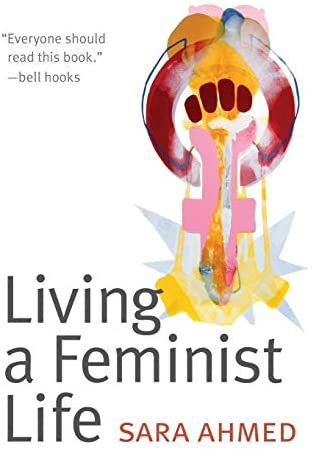 Sara Ahmed is a British-Australian scholar who’s had a significant impact on intersectional feminism. Aimed at general audiences, Living a Feminist Life is an introduction to her work and a brilliant look at how to connect feminist theory to everyday practice.
Sara Ahmed is a British-Australian scholar who’s had a significant impact on intersectional feminism. Aimed at general audiences, Living a Feminist Life is an introduction to her work and a brilliant look at how to connect feminist theory to everyday practice.
“Living a feminist life does not mean adopting a set of ideals or norms of conduct, although it might mean asking ethical questions about how to live better in an unjust and unequal world (in a not- feminist and antifeminist world); how to create relationships with others that are more equal; how to find ways to support those who are not supported or are less supported by social systems; how to keep coming up against histories that have become concrete, histories that have become as solid as walls.”
The “feminist killjoy” looms large in Ahmed’s work. In a society where happiness equates with conformity, when you expose a problem, you pose a problem; when you describe a problem, you become a problem; and the experience of being a feminist, like being Pagan, is often an experience of being out of tune with others.
Ahmed’s book is about grounding feminism in everyday, ordinary experiences. It’s about learning the patriarchal tools, that feminism requires discomfort, and the willingness to cause unhappiness by speaking up about sexual harassment, racism, and other forms of oppression.
Fulfillment: Winning and Losing in One-Click America by Alec MacGillis, 2021 (Economics)
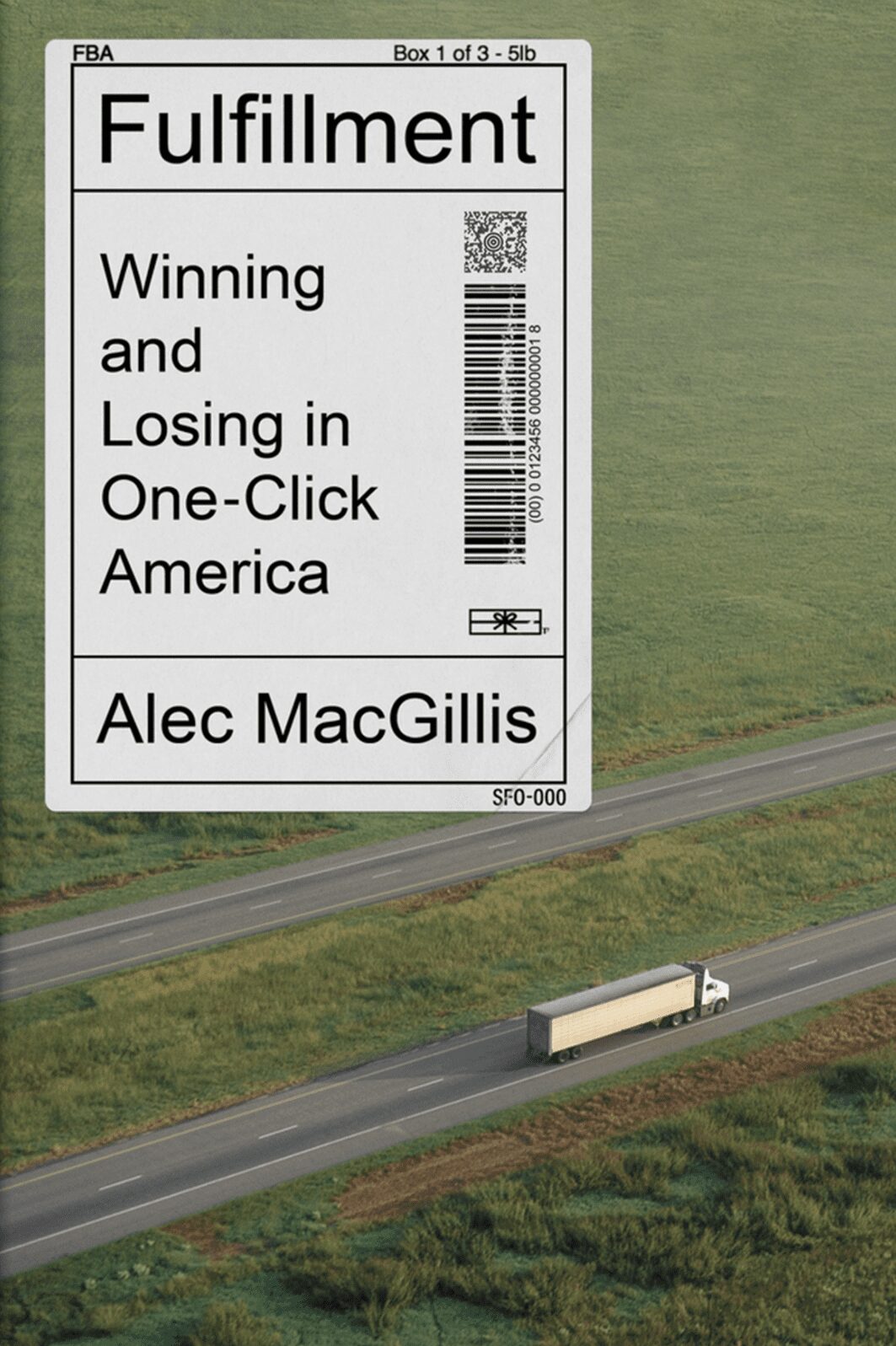 Fulfillment: Winning and Losing in One-Click America by Alec MacGillis is not about the origins of Amazon or an inside account. Yes, you’ll note the founder’s extraordinary personal fortune against the modest wages of most of its employees, the rudimentary, unreliable, isolating nature of the work, and the immense influence Amazon has over state and federal government. You’ll also note how little tax the company pays, how little it gives back to the community, and how taxpayers have to make up for what Amazon doesn’t provide. But Fulfillment is about more than that; it’s about the American economy and the disintegration of America’s civic fabric.
Fulfillment: Winning and Losing in One-Click America by Alec MacGillis is not about the origins of Amazon or an inside account. Yes, you’ll note the founder’s extraordinary personal fortune against the modest wages of most of its employees, the rudimentary, unreliable, isolating nature of the work, and the immense influence Amazon has over state and federal government. You’ll also note how little tax the company pays, how little it gives back to the community, and how taxpayers have to make up for what Amazon doesn’t provide. But Fulfillment is about more than that; it’s about the American economy and the disintegration of America’s civic fabric.
MacGillis, an award-winning journalist, examines the many threads of Amazon’s dominance and how the company is an engine of regional inequality in the United States. He devotes much of the book to the heartbreaking stories of Americans from once-formidable midsize cities now emptied as Amazon methodically built its presence, consolidated wealth in some cities, such as Seattle, and damned others to tax-starved subsistence.
Fulfillment: Winning and Losing in One-Click America was a selection of the NPR Politics Podcast Book Club. Listen to an interview with Alec MacGillis on NPR Politics.
America On Fire: The Untold History of Police Violence and Black Rebellion Since the 1960s by Elizabeth Hinton, 2021 (History, Politics)
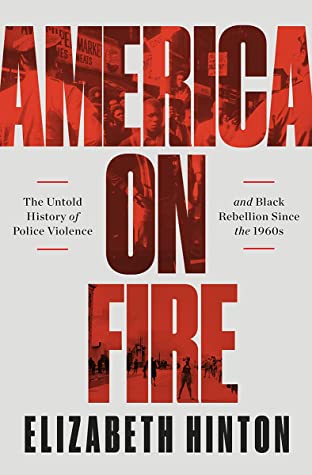 Historically, white vigilantes seeking to police Black people’s activities and limit their access to jobs, housing, leisure, and the political sphere have perpetrated most instances of racially motivated mass criminality. When black collective violence against repression surfaced, it became characterised as criminal and senseless riots, and police assumed the role of white mobs.
Historically, white vigilantes seeking to police Black people’s activities and limit their access to jobs, housing, leisure, and the political sphere have perpetrated most instances of racially motivated mass criminality. When black collective violence against repression surfaced, it became characterised as criminal and senseless riots, and police assumed the role of white mobs.
Elizabeth Hinton is a Yale University professor of law, history and African-American studies and a leading scholar of mass incarceration in the United States. Her book, America On Fire: The Untold History of Police Violence and Black Rebellion Since the 1960s, is a deeply researched and heart-rending examination of the origins of police violence against Black Americans. Hinton zooms out to convincingly argue that violent clashes that have broken out with police in Black communities ought to be understood as rebellions that are part of a sustained insurgency in response to racially biased policing and government policy. It’s a brilliant historical tour and contextualises the present moment.
America On Fire: The Untold History of Police Violence and Black Rebellion Since the 1960s was a selection of the NPR Politics Podcast Book Club. Listen to an interview with Elizabeth Hinton on NPR Politics.
Jesus and John Wayne: How White Evangelicals Corrupted a Faith and Fractured a Nation by Kristin Kobes Du Mez, 2021 (History, Religion, Politics)
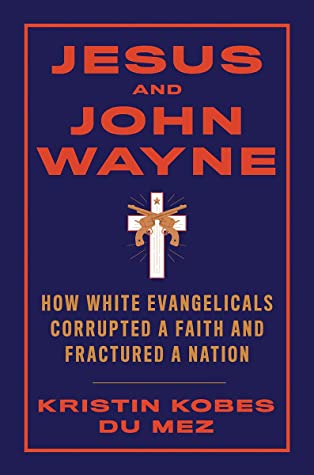 I’ve read several books on politics over the last few years, including Bob Woodward’s Rage and Fear, Carlos Lozada’s What Were We Thinking: A Brief Intellectual History of the Trump Era, and Lilliana Mason’s Uncivil Agreement: How Politics Became Our Identity, all of which were excellent. Yet no book has helped me understand the current religious and political landscape of the United States more than Jesus and John Wayne: How White Evangelicals Corrupted a Faith and Fractured a Nation by Kristin Kobes Du Mez, Professor of History and Gender Studies at Calvin University, a private Christian university.
I’ve read several books on politics over the last few years, including Bob Woodward’s Rage and Fear, Carlos Lozada’s What Were We Thinking: A Brief Intellectual History of the Trump Era, and Lilliana Mason’s Uncivil Agreement: How Politics Became Our Identity, all of which were excellent. Yet no book has helped me understand the current religious and political landscape of the United States more than Jesus and John Wayne: How White Evangelicals Corrupted a Faith and Fractured a Nation by Kristin Kobes Du Mez, Professor of History and Gender Studies at Calvin University, a private Christian university.
Evangelicals make up 12 to 25% of the U.S. population, but according to Du Mez, they “punch above their weight” politically because they have been extremely mobilised within the Republican Party. It began in the 1960s, crystallised in the 1981 election of Ronald Reagan, and Jesus and John Wayne traces this development.
Evangelical leaders point to a set of beliefs and doctrines, such as the authority of Scriptures, to define themselves. Still, it quickly becomes evident that Biblical values do not define evangelicalism. Evangelicalism is a cultural movement at the centre of a militant, white, patriarchal, heteronormative conception of Christian masculinity. It has a vast consumer culture that includes Christian radio, publishing, school textbooks, and home-schooling, reinforcing its carefully constructed historical narratives.
If you’ve ever wondered how Christians could embrace Donald Trump, ignore the abuse and sexual scandals within their communities, claim to be pro-life while assassinating abortion providers, ignore the AIDS crisis, block programs that provide health care, and otherwise rationalise what appear to be extreme contradictions, then read Jesus and John Wayne.
Jesus and John Wayne: How White Evangelicals Corrupted a Faith and Fractured a Nation was a selection of the NPR Politics Podcast Book Club. Listen to an interview with Kristin Kobes Du Mez on NPR Politics.
Factfulness: Ten Reasons We're Wrong About the World – and Why Things Are Better Than You Think by Hans Rosling with Ola Rosling and Anna Rosling Rönnlund, 2018 (Science)
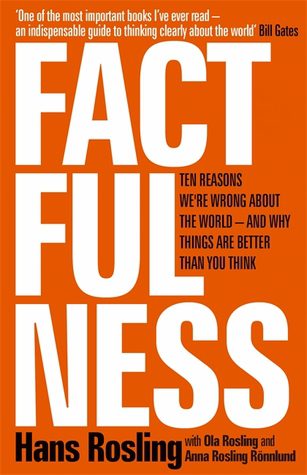 In the late 1960s, communications professor George Gerbner coined the phrase “mean world syndrome” to describe our perception that the world is more dangerous than it is. This cognitive bias is due to long-term exposure to alarmist media content, increasing fear, anger, depression, and anxiety.
In the late 1960s, communications professor George Gerbner coined the phrase “mean world syndrome” to describe our perception that the world is more dangerous than it is. This cognitive bias is due to long-term exposure to alarmist media content, increasing fear, anger, depression, and anxiety.
In Factfulness: Ten Reasons We’re Wrong About the World – and Why Things Are Better Than You Think, Swedish physician and statistician Hans Rosling argues that most of us are wrong about the state of the world. He proposes alternatives to outdated models and knowledge, looks at ten instincts that prevent us from seeing progress in the world, and practical advice for overcoming our innate biases.
Formerly a professor of international health, Rosling focuses on global poverty, health, and education. There’s room for criticism in his book if we turn to climate change and political instability. However, Factfulness is a valuable book for helping us to challenge our assumptions and look at the world with less ignorance and melodrama. Bill Gates described Factfulness as one of the most educational books he’s ever read.
The Engagement: America's Quarter Century Struggle Over Same-Sex Marriage by Sasha Issenberg, 2021 (History)
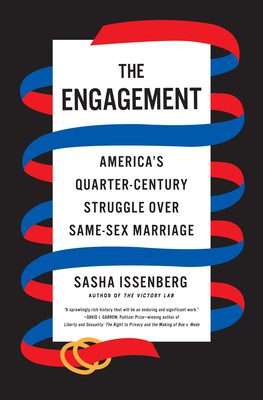 The Engagement: America’s Quarter Century Struggle Over Same-Sex Marriage is a comprehensive, detailed history of same-sex marriage in the United States by political journalist Sasha Issenberg. I’m halfway through this 900-page chronicle, but I’m comfortable recommending it.
The Engagement: America’s Quarter Century Struggle Over Same-Sex Marriage is a comprehensive, detailed history of same-sex marriage in the United States by political journalist Sasha Issenberg. I’m halfway through this 900-page chronicle, but I’m comfortable recommending it.
One of the most interesting learnings is that marriage equality wasn’t an issue that most LGBTIQ activists were pursuing. They were more concerned with surviving in a nation with sodomy laws and where being openly homosexual could lead to violence and the legal loss of jobs and housing. Some lesbian feminists rejected the patriarchal concept of marriage altogether. Gay and lesbian people of colour and trans people also had more significant concerns about unemployment, homelessness, and HIV. Still, because the religious right deemed LGBTIQ people couldn’t marry, they forced activists to defend gay marriage. The same-sex marriage equality movement was shaped by opposition, predominantly white, and funded by “gay economic might.”
There is so much I don’t know about the struggle for marriage equality. For instance, I didn’t know about Hawaii’s critical role in being the first state to determine that the right to wed was a basic civil right. I didn’t know that the Church of Jesus Christ of Latter-day Saints led a secretive, massive crusade for Proposition 8, the California state constitutional amendment intended to ban same-sex marriage. The Engagement is long, dense, encyclopaedic, and meandering, but entertaining and very interesting.
The Engagement: America’s Quarter Century Struggle Over Same-Sex Marriage is the latest selection of the NPR Politics Podcast Book Club. Look for an interview with Sasha Issenberg soon the NPR Politics podcast.

